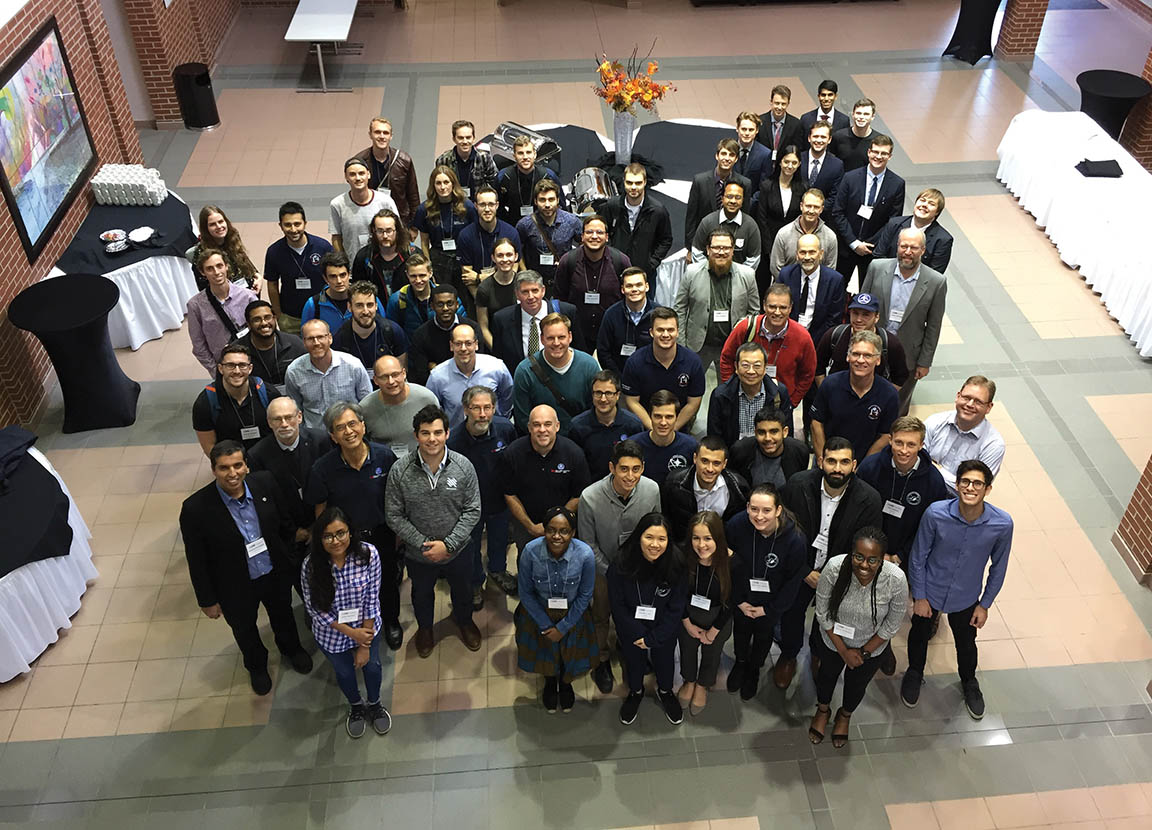On October 7, 8 and 9, 2019, the University of New Brunswick’s (UNB) Department of Electrical and Computer Engineering and CubeSat NB hosted the first of three Preliminary Design Review (PDR) meetings for the Canadian CubeSat Project initiated by the Canadian Space Agency (CSA).
The Canadian Space Agency is providing support and guidance to 15 teams of university and college students across Canada who are building satellites. These satellites are in the “CubeSat” format, based on a standardized architecture of 10 cm cubes. All 15 proposed satellites will be deployed from the International Space Station (ISS), possibly starting in 2021.
Radio Amateurs of Canada was present because many of the CubeSat projects are proposing to use Amateur Radio frequencies. RAC Atlantic Director Dave Goodwin, VE9CB, attended the PDR to offer RAC’s insight into these projects and to discuss the processes required to secure frequency coordination for these projects through the International Amateur Radio Union (IARU).
At the meeting at UNB, six teams led by students from UNB, the Université de Moncton, New Brunswick Community College, the University of Prince Edward Island, Dalhousie University (NS), Memorial University of Newfoundland with C-CORE, the Université de Sherbrooke (QC) and Concordia University (QC), presented their work to date on designing six satellites. They sought feedback and suggestions from other teams as well as the federal government agencies – the Canadian Space Agency (CSA), Global Affairs Canada (GAC), Innovation, Science and Economic Development Canada (ISED) – and NanoRacks, the US-based company that provides launch services for the Canadian CubeSat Project.
Following the Fredericton event, similar meetings were also held in London, Ontario and Victoria, British Columbia for Preliminary Design Reviews of the nine other CubeSats in the Canadian CubeSat Project in Ontario, western Canada, and northern Canada.
Designing and constructing CubeSats is a complicated, multi-year process. These projects will develop these students’ skills in many facets of engineering, science, technology, business and project management. Once in orbit, these satellites will assist pure and applied scientific research. Some of these satellites may offer facilities that Radio Amateurs across Canada and around the world can use.
– Dave Goodwin, VE9CB and Brent Petersen, VE9EX.
Source Radio Amateurs of Canada (RAC) Bulletin

